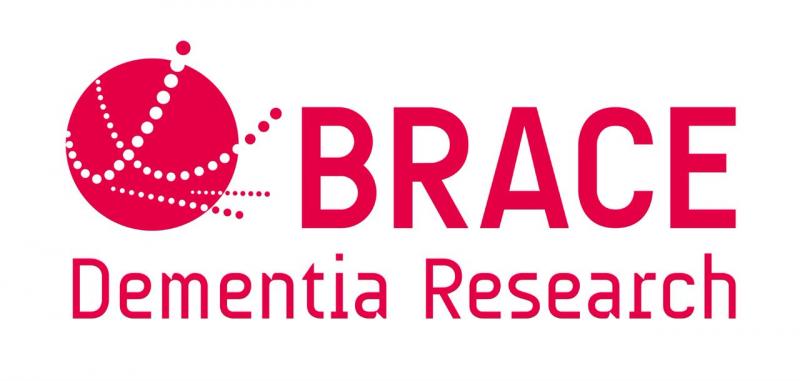Help BRACE Dementia Research Make a Difference by Casting a Vote in the January Poll
About BRACE Dementia Research

BRACE Dementia Research is working to change that through funding world class research into Alzheimer's and other forms of dementia. The research aims to find better treatments, earlier diagnosis and one day, a cure. Since 2000, the charity has funded more than 30 PhDs in dementia research. Through training young scientists, the charity will help ensure there will always be dementia experts working in this field to find the answers we need. Research is crucial to stop dementia and with your help we can all get one step closer to a dementia free world.
What is Dementia?
In the UK there are 850,000 people living with dementia. Currently there are no drugs that can stop or slow down disease progress. One in three people born today will develop dementia in their lifetime which is often a degenerative condition which affects the brain in such a way that causes a loss of cognitive ability. Dementia steals people’s memories and comes at a great cost, emotionally, physically, and financially to all those and their families who get this devastating diagnosis.
How Does BRACE Dementia Research Offer Support?
Over the years, the charity has remained true to its mission to help science understand the causes of these devastating diseases. The charity’s contribution to the global bank of dementia knowledge has been remarkable, bringing real hope for the future.
BRACE continues to support circa 40 dementia research projects at various stages of completion - these include PhDs and pilot project research following promising lines of inquiry.
BRACE has continued to support the South West Dementia Brain Bank, a platform on which most dementia research depends as well as providing funding for a Specialist Dementia Research Nurse at the Bristol Brain Centre, which is the only neurology clinic in the region. This post supports newly diagnosed patients who would otherwise have to wait some months to see a consultant. The role is not funded by the NHS and so requires full charitable support.
Frequently Asked Questions About Dementia
What are the different types of Dementia?
Alzheimer’s Disease- This is the most common form of dementia and the first signs include short term memory loss which is followed by confusion, problems with language and speech as well as severe memory problems. This is a progressive disease affecting the brain by having protein build up around the brain cell resulting in them being damaged and therefore reducing the size of the brain.
Vascular Dementia- This is the second most common type of dementia which is caused by diseased blood vessels providing lack of blood to selected brain cells and resulting in death of brain cells. Problems with memory, thinking and reasoning are the most common symptoms.
Dementia With Lewy Bodies- In this case lewy bodies which are a deposit of a protein in nerve cells affect the brain and the nervous system. This causes the uncureable progressive disease.
Frontotemporal Dementia- This mostly affects individuals under the age of 65, where Nerve cells in the frontal and/or temporal lobes of the brain die and the pathways that connect them change.
Are Alzheimer's and Dementia The Same Thing?
Dementia is a term used to describe a decline in cognitive ability leading to a long term health condition, whereas Alzheimer’s is a form of dementia.
Can Dementia be Cured?
No, currently dementia cannot be cured, leading to a permanent and progressive condition where individuals are unable to remember memories, have difficulty with speech and language as well as developing a personality change. BRACE Dementia Research are tirelessly working towards defeating dementia whilst supporting those who need it the most. The charity would highly appreciate your support this month in the charity poll by casting a vote for them.
What Age can I Get Dementia?
Dementia is most common in people at the age of 65 or over, however it can begin from as early as 30 years of age. It is important to get a professional diagnosis if you see any changes in your or your loved one’s behaviour so the progression of the disease can be slowed down.
What are The Early Symptoms of Dementia?
Some early symptoms can include mood changes, confusion about a place or about time, difficulty concentrating, short term memory loss, difficulty with carrying out familiar tasks, and struggling to keep up a conversation or finding the right words.
For more information and to donate, please visit the charity's website https://www.alzheimers-brace.org/.





